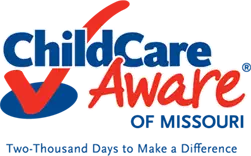How Can We Understand the Early Childhood Education Pathway
Many of us might have distant memories of when we were a little toddler, we might not remember it as learning, but we were doing something. Just running around, singing songs, playing around, sleeping. We might not have known the importance of it back then, but Early Childhood Education has played a crucial role more than we know.
95% of a child’s brain development occurs during the toddler stage. Everything the child sees brings forth interest and makes them learn about that. So, this education is very important for toddlers, and it might help them when they reach higher grades. This education is known as Early Child Education. The main goal of this program is to educate the child from infancy to early elementary so that they can get a good education at the beginning stage.
What Are the Key Stages of the Early Childhood Education Pathway?
1. Infancy (0-2 Years)
- Focus: Sensory and motor development, attachment formation, basic communication.
During infancy, children begin to explore the world through their senses. They form secure attachments with caregivers, which are vital for emotional security. This stage is characterized by rapid brain development, motor skills like crawling and walking, and the beginnings of language acquisition.
2. Toddlerhood (2-3 Years)
- Focus: Language development, social interaction, autonomy.
As toddlers, children become more mobile and start to develop language skills. They engage in more complex social interactions and begin to assert their independence. This stage is crucial for developing self-concept and early social skills, such as sharing and cooperating with peers.
3. Preschool (3-5 Years)
- Focus: Cognitive development, socialization, early literacy and numeracy.
The preschool years are marked by a significant increase in cognitive abilities. Children begin to engage in more structured learning activities, develop problem-solving skills, and enhance their understanding of concepts like numbers, shapes, and colors. Socialization becomes more complex, with children learning to navigate friendships and group dynamics.
4. Kindergarten (5-6 Years)
- Focus: Formal education, literacy and numeracy, social-emotional development.
Kindergarten serves as the bridge between early childhood education and formal schooling. Children start to engage in more structured academic learning, particularly in literacy and numeracy. Social-emotional development remains critical, as children learn to regulate their emotions, follow instructions, and work collaboratively in a classroom setting.
5. Early Elementary (6-8 Years)
- Focus: Academic skills, critical thinking, independent learning.
In the early elementary years, children build on the foundational skills acquired in kindergarten. They develop more advanced reading, writing, and mathematical skills. Critical thinking and problem-solving become more prominent, and children are encouraged to take on more independent learning tasks. Social relationships and self-esteem continue to develop, influencing their academic and personal growth.
The Role Of Parents In Their Child’s Early Childhood Education Pathway:
The early childhood education pathway ensures that a child gets the fundamentals that will be helpful for their academic and personal growth. However, to get that education, they should be enrolled in a school appropriate to their level of development. The child can’t choose their school, it is up to the parent to find the right school for their kid, that allows them to play, learn, and develop the qualities to be a good citizen. Here are some ways, parents can support their child’s journey:
Choosing the Right Early Childhood Program
Selecting the right early childhood program is a vital decision for parents. A high-quality program can establish a nurturing environment that supports social, emotional, and cognitive development.
Parents should look for programs with a comprehensive curriculum, competent and caring teachers, and a safe and enriching setting. It’s also significant to consider the school’s principles and whether they are in line with those of the family. Visiting the program, talking to other parents, and inquiring about the daily schedule, teacher-to-student ratio, and how the program meets individual needs can all aid in making a well-informed decision.
Engaging in Early Learning Activities at Home
Learning doesn’t stop at school; it continues at home. Parents can support their children’s learning by engaging in activities that reinforce what they are learning in their early childhood program. Reading together daily, playing educational games, and encouraging creative play can help build a strong foundation for literacy, numeracy, and problem-solving skills. Simple activities like cooking together, exploring nature, or even discussing the day’s events can stimulate a child’s curiosity and enhance their cognitive abilities.
Monitoring Developmental Milestones
Understanding and monitoring developmental milestones is essential in supporting a child’s growth. Parents should be aware of the typical milestones in areas such as language, motor skills, social interaction, and cognitive development. Regularly observing and noting their child’s progress can help identify areas where they may need additional support or enrichment. If there are concerns about a child’s development, early intervention is key. Parents can consult with pediatricians, educators, or child development specialists to get guidance on how to address any issues.
Long-Term Benefits of the Early Childhood Education Pathway:
Enhanced Cognitive Development:
Early childhood education lays a strong foundation for cognitive development, fostering critical thinking, problem-solving skills, and creativity. Children exposed to structured learning environments during their formative years are more likely to excel academically in later stages of education.
Improved Social and Emotional Skills:
Early education helps children develop essential social and emotional skills, such as communication, empathy, and self-regulation. These skills are crucial for forming healthy relationships, resolving conflicts, and adapting to different social settings throughout life.
Better Academic Performance:
Studies show that children who participate in early childhood education programs are more likely to perform better academically in their primary and secondary school years. This early start often leads to higher graduation rates and a greater likelihood of pursuing higher education.
Long-Term Economic Benefits:
Investing in early childhood education has long-term economic benefits for both individuals and society. Children who receive quality early education are more likely to secure stable employment, earn higher wages, and contribute positively to the economy. Additionally, early intervention can reduce the need for remedial education and social services later in life.
Conclusion:
The early childhood education pathway plays a crucial role in shaping a child’s development by providing them with a solid foundation in essential skills and knowledge. Beyond purely academic pursuits, this program instills values such as discipline, respect for peers, and responsibility for their environment. Through consistent participation, children gain practical experience that prepares them for the challenges of school life, nurturing them into responsible, well-rounded adults.
Frequently Asked Questions
How can parents support their child’s Early Childhood Education journey?
Parents can support their child’s Early Childhood Education journey by engaging in learning activities at home, such as reading together, playing educational games, and exploring new things.
What qualifications should early childhood educators have?
Early childhood educators should ideally have a degree in Early Childhood Education or a related field, along with relevant state or national certification. Practical experience working with young children is essential, as are soft skills like patience, creativity, and good communication.
How do I choose the right Early Childhood Education program?
When choosing the right Early Childhood Education program, it’s important to check that the curriculum is balanced and age-appropriate. Visiting the program to tour the facility and speak with teachers can provide valuable insight. Make sure the program is accredited and licensed, and consider the class size, as a lower teacher-to-child ratio is generally better.
How can I track my child’s progress in the Early Childhood Education Pathway?
To track a child’s progress in the Early Childhood Education pathway, parents should maintain regular communication with teachers and review any progress reports provided by the school.
Observing the child’s skills and behavior at home is another way to monitor development.
Are there financial assistance options for Early Childhood Education?
Yes, there are several financial assistance options available for Early Childhood Education. Government programs like Head Start and state-funded Pre-K can provide free or reduced-cost education.
How does Early Childhood Education impact future academic success?
Early Childhood Education has a significant impact on a child’s future academic success. It builds a strong foundation by helping children develop important skills in reading, math, and problem-solving.




